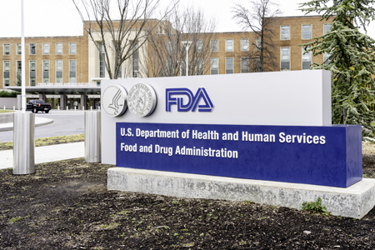FDA Releases Draft Guidance On Decentralized Clinical Trials
By Sean Hilscher, MBA, MA, Greenleaf Health

In early May, two weeks prior to the expiration of the COVID-19 Public Health Emergency declaration, FDA released the draft guidance Decentralized Clinical Trials for Drugs, Biological Products, and Devices.1 The timing of this draft guidance is notable as the document builds upon many of the recommendations FDA provided in the March 2020 guidance Conduct of Clinical Trials of Medical Products During the COVID-19 Public Health Emergency2 (which we covered back in 2020 for Clinical Leader here) which were intended to help sponsors continue their trials throughout the COVID-19 crisis. During the public health emergency, with many trial participants and personnel in isolation, per local COVID-19 control policies, FDA detailed several approaches sponsors could take to maintain continuity of their clinical trials, such as the use of electronic informed consent, use of digital health technologies to conduct assessments, use of local healthcare providers to administer trial procedures, and the direct shipment of investigational products to trial participants, among other measures. Thus, the May 2023 guidance on decentralized trials marks a continuation of FDA’s thinking on the decentralization of clinical trials.
The draft guidance fulfills Section 3606(a) of the Food and Drug Omnibus Reform Act (FDORA)3 requiring the agency to issue guidance on decentralized clinical trials (DCTs) by Dec. 29, 2023. Authored by all three medical product review centers, as well as the Oncology Center of Excellence, the draft guidance recommends a risk-based approach to the conduct and oversight of decentralized clinical trials.
The draft guidance identifies DCTS as trials wherein some or all trial-related activities occur outside of traditional clinical trial sites. More specifically, DCTs incorporate the use of local healthcare facilities, local healthcare providers (HCPs), and local clinical laboratory facilities; visits to trial participants’ homes; and direct distribution of the investigational product to the trial participant. Trials where some activities are conducted at the traditional trial site while other activities, such as follow-up assessments, are conducted remotely are termed “hybrid” clinical trials by the agency.
As noted, FDA recommends a risk-based approach when considering a decentralized trial design – noting that investigational products that are “simple to administer or use, have well-characterized safety profiles, and do not require complex medical assessments”4 are the most appropriate and well suited for evaluation in DCTs. The FDA cautions sponsors to be mindful of potential differences in data accuracy and consistency between DCT and conventional trials conducted at a physical site. While these variances may not impact the validity of trial results that seek to establish superiority of one treatment over another, they could impact the accuracy of results in a trial that aims to establish non-inferiority. For example, the effectiveness of a drug tested in a DCT may not be identical to the effectiveness of the same drug tested in a traditional trial that employs an active control, as evaluations performed by local healthcare providers in DCTs may be less precise and more variable than those conducted by dedicated trial personnel at site-based trials.
Beyond defining DCTs and identifying the appropriate situations for their use, the draft guidance provides key recommendations on the innovative approaches sponsors can use to decentralize trials and move trials outside of traditional sites. The draft guidance also includes some important considerations on safety and data security that are likely to arise in remote contexts.
Remote Trial Visits
The draft guidance affirms that telehealth visits can be used instead of in-person trial site visits, especially if no in-person interaction is needed. This was an innovation that FDA introduced in the March 2020 Conduct of Clinical Trials guidance, although it should be noted that the need for alternatives to in-person site visits to facilitate enrollment and conduct of clinical trials was recognized by FDA well before the pandemic. For example, a 2015 Federal Register notice sought comment and recommendations on innovative mechanisms to increase clinical trial enrollment, such as the use of telehealth visits.5
In addition to telehealth visits, the draft guidance also provides sponsors with the option to use local HCPs, who are not officially trial personnel. Importantly, the services local HCPs provide should not differ from the services they are qualified to perform in clinical practice. In addition, the activities local HCPs may provide should not require unique or detailed knowledge of the trial protocol or the investigational product.
Should telehealth technologies or local HCPs be used to facilitate decentralized trials, the trial protocol should detail how adverse events will be remotely identified, evaluated, and managed. Additionally, in the interest of trial efficiency and patient experience, sponsors are responsible for training trial personnel on the technology used to conduct a telehealth visit.
Digital Health Technologies
Although digital health technologies (DHTs) are among most common tools used in DCTs, the draft guidance does not focus extensively on this topic as it is well covered in the December 2021 draft guidance Digital Health Technologies for Remote Data Acquisition in Clinical Investigations6 [Editor’s note: Covered by Clinical Leader here.] However, the draft guidance does note that sponsors may permit trial participants to use their own DHTs in trials, as long as the sponsor also provides the same DHTs to other participants, so they are not excluded.
Direct Shipment Of Investigational Products
The draft guidance confirms that the direct distribution of the investigational product (IP) to trial participants at their homes or other remote location is acceptable. However, should this method distribution be used, sponsors should describe in the protocol how the physical integrity and stability of the IP will be maintained during shipment. Similarly, the protocol should describe how investigators will track and document the receipt of IP by trial participants, as well as how participants should dispose of unused IPs and how this should be documented. IPs that are considered good candidates for direct shipment include those with long shelf lives and good stability profiles.
The draft guidance also notes that sponsors may also use a central distribution service to ship IP directly to trial participants. The investigator, however, must still control the release of the IP by the distributor, as well as monitor receipt and use by trial participants, as specified in the protocol.
Administration Of The Investigational Product
As discussed above, sponsors should consider the nature of the IP when determining whether to administer it outside of traditional trial sites. FDA advises that IPs that involve complex administration procedures, have a high-risk safety profile, or are in early stages of development may require in-person supervision by the investigator at a trial site. Similarly, investigators should also consider the safety profile (e.g., risk of hypersensitivity, abuse potential) in determining the type of local care that participants may need to have access to if an adverse event occurs.
Informed Consent And Institutional Review Board Oversight
While discussed extensively in the March 2020 Conduct of Clinical Trials guidance, the DCT draft guidance also addresses the use of remote informed consent, albeit briefly. Specifically, the draft guidance confirms that investigators may obtain electronic informed consent remotely provided that all regulations under 21 CFR Part 50 are met. FDA also recommends that investigators have a central Institutional Review Board (IRB) to facilitate the review of the protocol and the informed consent documents.
Roles And Responsibilities
FDA notes that sponsors’ responsibilities are the same in DCTs as they are in traditional site-based trials. Due to the potential of multiple sources of data collection, sponsors should ensure their data management plan specifies data origin, data flow, and the methods used for data collection and includes a list of vendors involved in data collection, handling, and management. The draft guidance also recommends sponsors detail all operational aspects of a DCT in a trial protocol, while case report forms should identify when and where data is collected.
FDA recognizes that DCTs add complexity to the investigator’s role in overseeing trial conduct, as some decentralized features necessitate additional training and careful coordination of remote activities. FDA reiterates that local HCPs may perform trial-related procedures at a participant’s home or other local healthcare facility. However, local HCPs need not and should not be listed as sub-investigators on Form FDA 1572. The draft guidance also states that some trial protocols may permit the use of clinical laboratory facilities close to the trial participant, although designated clinical laboratory facilities are preferred to minimize variability.
Safety Monitoring
As with site-based trials, safety monitoring plans should describe how participants are expected to respond to and report adverse events, specifically noting where to seek local medical care if needed. In addition, the draft guidance also notes that trial participants should be able to contact trial personnel to report adverse events and arrange for telehealth visits if necessary. Lastly, the safety monitoring report should also describe the information collected by a digital health tool – detailing how the information will be used and monitored and how personnel or participants should respond to electronic alerts.
Software Considerations
The FDA notes that software can be used for multiple purposes in a DCT, including managing electronic informed consent, capturing and storing reports, managing electronic case forms, scheduling trial visits, and tracking IPs shipped directly to participants. Software programs used to produce and process trial records are subject to 21CFR Part 11 and must ensure data reliability, security, privacy, and confidentiality. Real-time video interactions, however, such as telehealth visits, are considered by FDA as live exchanges of information between trial personnel and trial participants and thus are not considered electronic records and subject to 21 CFR Part 11.
The FDA is accepting public comments on the draft guidance until August 1, 2023. All written comments should be identified with the docket number FDA-2022-D-2870.
References
- FDA, Decentralized Clinical Trials for Drugs, Biological Products, and Devices, Draft Guidance, May 2023, https://www.fda.gov/media/167696/download.
- FDA, Conduct of Clinical Trials of Medical Products During the COVID-19 Public Health Emergency, Guidance, March 2021, https://www.fda.gov/media/136238/download.
- H.R. 2617; Food and Drug Omnibus Reform Act (FDORA), https://www.congress.gov/117/bills/hr2617/BILLS-117hr2617enr.pdf.
- Decentralized Clinical Trials for Drugs, Biological Products, and Devices, Draft Guidance, Lines 63 – 65.
- 80 FR 66543, October 29, 2015, https://www.federalregister.gov/documents/2015/10/29/2015-27581/using-technologies-and-innovative-methods-to-conduct-food-and-drug-administration-regulated-clinical.
- FDA, Digital Health Technologies for Remote Data Acquisition in Clinical Investigations, Draft Guidance, December 2021, https://www.fda.gov/media/155022/download.
About The Author:
 Sean Hilscher is vice president of regulatory policy at Greenleaf Health. He works with clients on a range of regulatory and policy issues, including real-world evidence and digital health. Prior to Greenleaf, he managed a suite of real-world evidence platforms for providers, payers, and life science companies. He has an MBA from Georgetown University and an MA in politics, philosophy, and economics from the University of Oxford.
Sean Hilscher is vice president of regulatory policy at Greenleaf Health. He works with clients on a range of regulatory and policy issues, including real-world evidence and digital health. Prior to Greenleaf, he managed a suite of real-world evidence platforms for providers, payers, and life science companies. He has an MBA from Georgetown University and an MA in politics, philosophy, and economics from the University of Oxford.
